Season of Protest
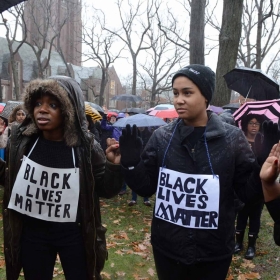
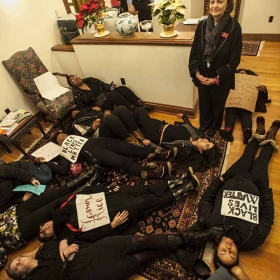

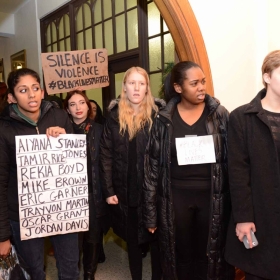
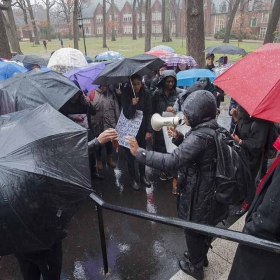
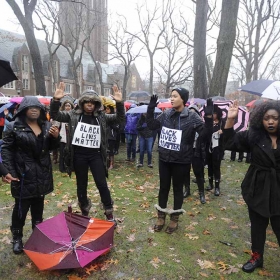
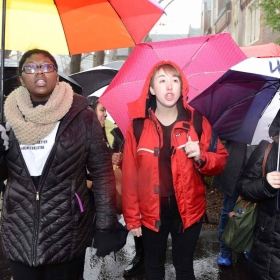
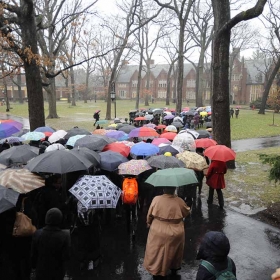
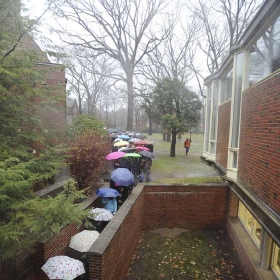
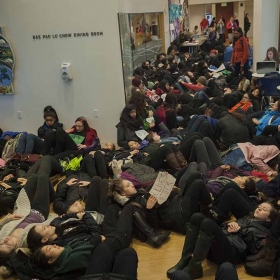
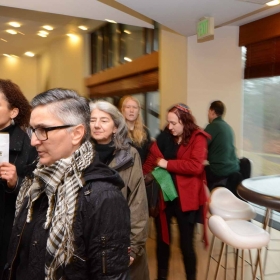
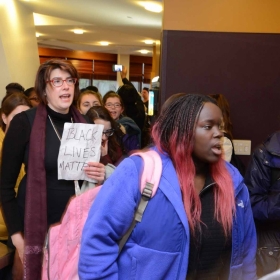
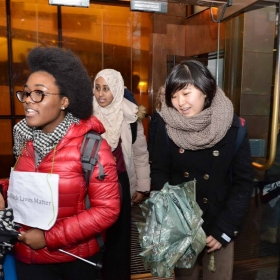
The American conversation on race has grown more urgent all over the country in the past year—and this has been true at Wellesley, too. President Bottomly has formed a Presidential Commission on Race, Ethnicity, and Equity at Wellesley to study the issues and make policy recommendations.
Michael Jeffries
The American conversation on race has grown more urgent all over the country in the past year—and this has been true at Wellesley, too. On Jan. 28, President H. Kim Bottomly wrote to the community, “Recent months have made it very clear that racial injustice remains a devastating force in our lives. … Though members of our community have supported each other during these recent difficult times, Wellesley is not immune. People of color and others from nondominant groups who live, study, and work here have suffered from racial injustice. Racism and ethnic bigotry are fundamental threats to institutions like Wellesley that are founded on the principles of equal opportunity and equal treatment.”
To understand and counter these injustices, and to more deeply educate the College community about the realities of the lives of people of color on campus, Bottomly has formed a Presidential Commission on Race, Ethnicity, and Equity at Wellesley to study the issues and make policy recommendations. Associate Professor of American Studies Michael Jeffries will chair a group comprising faculty, students, and staff, which will do its work over a minimum of three years.
The commission’s formation came after a series of meetings Bottomly held last winter, primarily with faculty of color. Jeffries feels the president “was trying to get a feel for the impact of the past few months, given the events going on around the country, student protests, and the Black Lives Matter movement. It’s a big step to name a presidential commission and to identify these issues in the way that Kim did. That puts a different sort of engine under the hood. We need to push back against institutional racism, both on and off campus. This is a long-term effort.”
Jeffries’ academic work as a sociologist focuses on race, gender, politics, identity, and popular culture. In 2013, Stanford University Press published his book, Paint the White House Black: Barack Obama and the Meaning of Race in America, which explores Obama-related topics to demonstrate how race relies on other social forces, like gender and class, for its meaning and impact. The College commission’s focus, he says, intersects with his teaching and research. “I have a certain set of skills and a certain kind of a knowledge base around these issues that can be helpful.”
Student life will be one focus of the commission’s exploration. “If you’re in college in America, you’re dealing with racism. You’re never going to go to a place that’s going to be a shield or a haven against issues of racism, sexism, and other forms of discrimination,” Jeffries says. “Those issues are going to come up. Do the students [at Wellesley] have the resources they need to build communities for themselves that are strong enough to push back against the racism that’s going on all around them, and make them feel as if they have a sense of efficacy on campus, that they’re a part of this place?”
‘We need to push back against institutional racism, both on and off campus. This is a long-term effort.’
—Michael Jeffries
He points to several successful examples of student empowerment on campus, including the Asian Student Alliance, Mezcla (the Latina cultural organization), and Ethos, the organization for students of African descent that celebrates its 47th anniversary this year. In addition, “my department, American Studies, is in the midst of a search for a tenure-track position in Latino/Latina studies that was largely the result of student organizing around ethnic studies.”
As for the work ahead, “I’m hopeful, because I know the quality and the moral capacity and the will of my colleagues. I know that there is a critical mass waiting to ramp up the effort. … You can’t ignore what’s going on all around us, not only in Wellesley but around the country.”
Another ongoing conversation in the country and on campus centers on gender identity. Jeffries was inspired by the President’s Advisory Committee on Gender and Wellesley, noting their dedication, “the ferocity with which they have attacked the work, and the depth of the research and the seriousness with which they have approached it.”
He adds, “People are watching Wellesley. People are going to look to this college to set an example around these issues of social justice and power and equity. That’s a great responsibility—and it’s one that we’re honored to take part in.”












